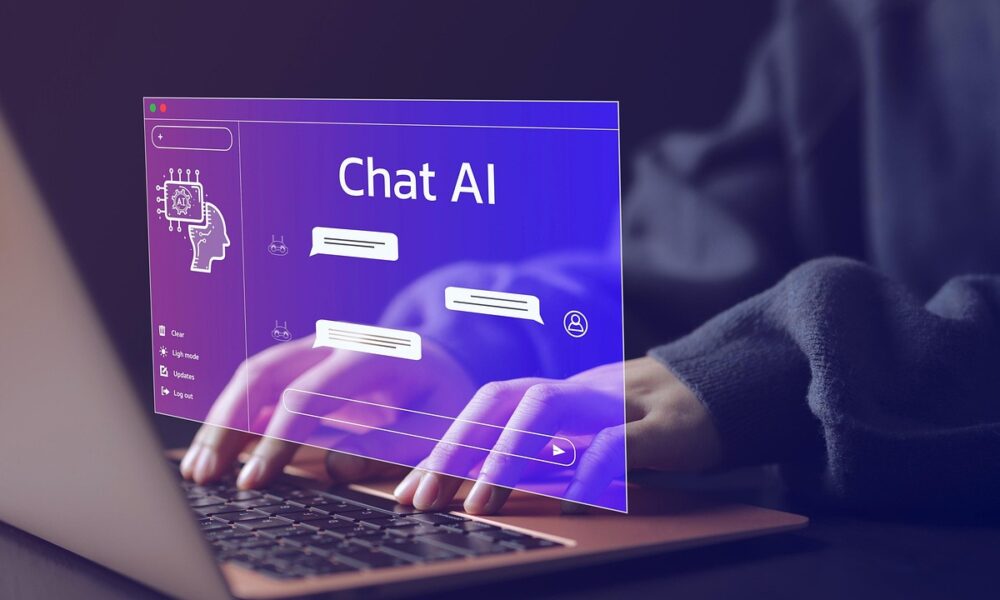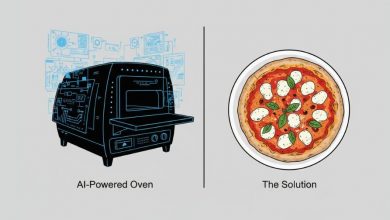Enterprise AI Chatbot: Types, Benefits, Use Cases, Features, and Examples

Artificial Intelligence (AI) is reshaping enterprise operations, improving customer experiences, and streamlining internal processes. One of the most transformative applications is the enterprise AI chatbot. These intelligent virtual assistants provide seamless communication, automate routine tasks, and enhance operational efficiency for businesses of all sizes.
This article will explore the types, benefits, use cases, essential features, and examples of enterprise AI chatbot solutions to help you understand their value.
What is an Enterprise AI Chatbot?
An Enterprise AI chatbot is a sophisticated AI-driven virtual assistant designed to handle complex interactions within an organization. It goes beyond simple customer queries, offering advanced functionalities such as data analytics, workflow automation, and personalized support.
Companies often collaborate with an enterprise AI chatbot development company to create tailored solutions that align with their unique business needs. These chatbots leverage machine learning and natural language processing (NLP) to deliver human-like conversations and superior user experiences.
Types of Enterprise AI Chatbots
There are several types of enterprise AI chatbots designed to cater to diverse business needs. These bots can be categorized into:
- Rule-Based Chatbots: These are simple chatbots that follow predefined rules and scripts. They are primarily used for handling repetitive queries, such as FAQs, order tracking, and basic support. While they lack advanced AI capabilities, they are still efficient in providing fast responses to routine tasks.
- Natural Language Processing (NLP) Chatbots: Unlike rule-based chatbots, NLP-based bots use machine learning algorithms and natural language processing to understand and respond to human language. These bots can engage in more complex conversations, recognizing user intent and context. NLP chatbots are suitable for businesses requiring more personalized and adaptive customer interactions.
- Conversational AI Chatbots: These chatbots combine NLP with deep learning techniques, allowing them to engage in highly dynamic and intelligent conversations. Enterprise AI chatbot development services create conversational AI bots capable of learning from every interaction and continuously improving over time. They are often used for customer support, virtual assistants, and even sales processes.
- Hybrid Chatbots: A combination of rule-based and AI-based bots, hybrid chatbots can switch between the two systems based on the complexity of the query. They are highly flexible, handling both simple and complex requests efficiently.
- Voice-Activated Chatbots: With the growing popularity of voice assistants like Alexa and Google Assistant, voice-activated chatbots are becoming an essential part of enterprise chatbot solutions. These bots use voice recognition technology to interpret spoken language, making them ideal for industries such as customer service, healthcare, and retail.
Key Benefits of Enterprise AI Chatbots
When integrated into an enterprise environment, AI chatbots offer myriad benefits that can enhance operational efficiency and customer satisfaction. Here are some key advantages:
1. Improved Customer Service
Enterprise AI chatbots provide instant responses to customer queries, ensuring that clients never have to wait long for assistance. By automating routine support tasks, chatbots free up human agents to handle more complex issues, leading to faster resolution times and enhanced customer satisfaction.
2. Cost Efficiency
Adopting enterprise chatbot solutions reduces the need for a large customer support team, which in turn cuts operational costs. Since chatbots can handle a high volume of interactions simultaneously, they reduce the strain on human agents and lower the cost per interaction.
3. 24/7 Availability
One of the major benefits of using chatbots for enterprises is their round-the-clock availability. AI bots can engage with customers at any time of day, operating across different time zones without interruption or downtime. This ensures that your business remains accessible, even outside regular working hours.
4. Personalized Customer Experience
Advanced AI-powered chatbots can offer personalized interactions by analyzing past customer data and preferences. This enables businesses to provide personalized recommendations and solutions, thereby enhancing customer loyalty and engagement.
5. Scalability
As businesses grow, so does the volume of customer interactions. Enterprise AI chatbot solutions scale effortlessly, handling thousands of inquiries without a drop in service quality. This scalability makes AI chatbots ideal for fast-growing companies that need to maintain high-quality customer support as they expand.
The versatility of enterprise AI chatbots extends to various business functions. Here are some of the most popular enterprise chatbot use cases:
1. Customer Support Automation
AI chatbots are widely used for automating customer support functions, such as answering FAQs, providing troubleshooting guidance, and processing basic requests like password resets. With their ability to handle routine queries, chatbots help human agents focus on more complex issues.
2. Lead Generation and Qualification
Many businesses use enterprise chatbots for lead generation. By engaging visitors on websites or social media platforms, chatbots can gather basic information, qualify leads based on predefined criteria, and schedule follow-up calls with sales teams. This automated process streamlines the lead qualification journey and enhances sales efficiency.
3. Order and Inventory Management
Enterprise AI chatbot solutions can automate order processing, manage inventory levels, and provide updates on shipping status. These bots can help businesses track products, confirm orders, and offer customers real-time insights on their purchases.
4. HR and Recruitment
HR departments use AI chatbots for candidate screening, onboarding, and answering employee queries related to policies, benefits, or payroll. Enterprise chatbot platforms can assist HR teams in managing repetitive tasks, reducing time spent on administrative duties.
5. E-commerce Assistance
In the e-commerce industry, chatbots act as virtual shopping assistants, guiding customers through the buying process, providing product recommendations, and answering questions about pricing or availability. These bots can also handle returns and refund requests.
6. Healthcare Assistance
AI chatbots are transforming the healthcare sector by offering appointment scheduling, answering patient queries, and providing basic medical advice. They can be integrated into hospital systems to handle routine patient interactions and support administrative functions.
Essential Features of Enterprise AI Chatbots
To provide a seamless experience, enterprise AI chatbots come equipped with various features that enhance their functionality. Here are the key features to consider:
1. Natural Language Understanding (NLU)
NLU allows chatbots to comprehend human language in its various forms, including slang, abbreviations, and context-specific phrases. This feature is crucial for delivering accurate and relevant responses in a conversational tone.
2. Omnichannel Integration
Modern enterprise chatbot platforms are designed to operate across multiple channels, such as websites, social media, mobile apps, and even messaging platforms like WhatsApp and Facebook Messenger. This ensures that businesses can offer a unified customer experience across all touchpoints.
3. Machine Learning and AI Integration
Machine learning algorithms help enterprise chatbots improve over time. As they interact with users, they learn from past conversations, identify patterns, and adapt their responses to offer more accurate and context-aware solutions.
4. Analytics and Reporting
Advanced chatbot solutions provide robust analytics and reporting features, allowing businesses to track chatbot performance, customer interactions, and satisfaction levels. This data is invaluable for improving chatbot effectiveness and customer service strategies.
5. Personalization
By analyzing user data, enterprise AI chatbot solutions can offer personalized experiences, such as recommending products, services, or content tailored to the individual’s preferences, thereby enhancing engagement and conversion rates.
6. Multi-Language Support
For enterprises operating in diverse geographic locations, chatbots with multi-language capabilities are essential. AI chatbots can communicate with customers in various languages, offering a global reach and catering to international clients.
Examples of Enterprise AI Chatbot Solutions
Several leading companies have developed innovative enterprise AI chatbots that are widely used across industries. Below are some examples:
1. IBM Watson Assistant
IBM Watson is a prominent enterprise AI chatbot solution known for its powerful AI capabilities. Watson Assistant can be integrated into various platforms and channels, making it suitable for enterprises across industries like healthcare, retail, and finance.
2. Microsoft Azure Bot Service
Microsoft’s Azure Bot Service offers an AI-driven platform for creating conversational chatbots. It integrates with Microsoft’s cloud solutions, enabling businesses to create scalable, intelligent bots for customer support, sales, and more.
3. LivePerson
LivePerson provides a conversational AI platform that focuses on customer support and sales. Their bots are designed to handle high volumes of interactions across channels, providing real-time assistance to customers and improving overall service quality.
4. Zendesk Answer Bot
Zendesk’s Answer Bot is an AI-powered chatbot designed to help businesses improve their customer support capabilities. It can respond to common customer inquiries, suggest relevant articles, and escalate issues to human agents when necessary.
How to Choose the Right Enterprise AI Chatbot Development Company?
Selecting the right enterprise AI chatbot development company is crucial for the success of your chatbot project. Here are some factors to consider:
- Expertise and Experience: Look for companies with proven expertise in developing AI-driven chatbot solutions.
- Customization Capabilities: Ensure they can tailor the chatbot to your unique business requirements.
- Integration Support: The company should offer seamless integration with your existing enterprise systems.
- Post-Deployment Support: Opt for a partner that provides ongoing support and maintenance.
Conclusion
Incorporating enterprise AI chatbots into business operations can significantly enhance efficiency, reduce costs, and improve customer satisfaction. By utilizing the capabilities of enterprise chatbot solutions, organizations can automate routine tasks, deliver personalized services, and scale their operations to meet growing demands. Whether you are looking to improve customer support, streamline HR processes, or boost sales, AI chatbots can provide a powerful tool for digital transformation.
Partnering with an experienced enterprise AI chatbot development company will ensure that you receive a tailored solution that aligns with your business goals. As businesses continue to recognize the value of AI-driven automation, the role of enterprise chatbot platforms is expected to grow, offering organizations new opportunities to excel in an increasingly competitive digital marketplace.

Source: Enterprise AI Chatbot: Types, Benefits, Use Cases, Features, and Examples



